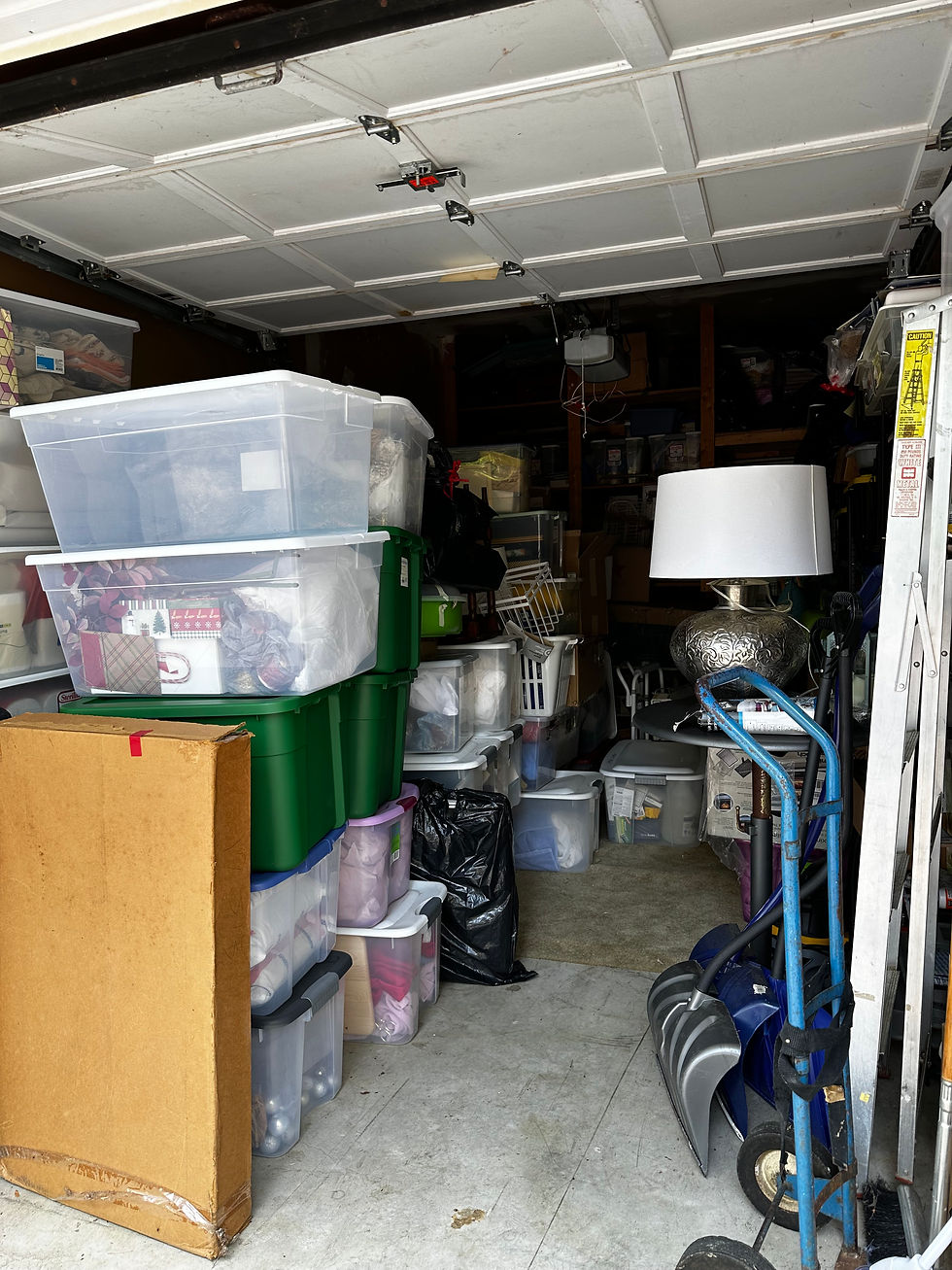Get Organized to Prevent Burnout
- Lisa Y

- Sep 30, 2025
- 3 min read
Burnout happens for a number of reasons. You could have too much on your plate that needs to be taken care of. You could also be unable to focus on any of those said tasks making it too difficult to finish it. So let’s talk about how you can get organized to prevent burnout.
Declutter Your Workspace to Declutter Your Mind
A physically disorganized space often reflects a mentally disorganized state of mind.. Take some time to declutter your workspace – whether it's your desk, your computer desktop, or even your kitchen or laundry room.
A clean and organized environment can reduce distractions and help you focus on the task at hand, whether that task is work related or home related. This clarity can significantly reduce feelings of being overwhelmed. But physically organizing and decluttering is just one small piece of the overall organizational puzzle.

Prioritize and Plan Effectively
One of the biggest contributors to burnout is feeling like you have too much to do and not enough time. Learning to prioritize is another larger part of getting organized. Using tools like to-do lists, calendars, or project management software can help you outline your tasks. Identify what's most important and tackle those items first. Break down larger projects into smaller, more manageable steps to make them feel less overwhelming and more achievable, and lead to a sense of accomplishment rather than discouragement.

Establish Routines and Boundaries
Consistency is the next key to preventing burnout. Develop routines for your daily and weekly tasks, including designated times for checking emails, working on specific projects, housework, and even taking breaks. Equally important is setting boundaries. Learn to say "no" to new commitments when your plate is already full. Protect your personal time and ensure you're allocating enough time for rest, hobbies, and social/personal connections. When you have a clear structure and protect your time, you're less likely to feel constantly on call and more in control of your schedule.
Delegate and Seek Support
Just as important, remember you don't have to do everything yourself. If possible, delegate tasks that can be handled by others. This could be a colleague to assist on a work project, a family member to help with the dishes or laundry, or even outsourcing certain responsibilities. Don't be afraid to ask for help when you need it. Against popular belief asking for help is not a sign of weakness or inability but rather a strength that you know your limits. Everyone has limits, and knowing them makes you stronger in the end, and happier! Building a support system, whether it's through mentorship, a mastermind group, or simply friends and family, can provide an outlet for stress and offer fresh perspectives when you feel overwhelmed.
Regular Reviews and Adjustments
Organization isn't a one-time event; it's an ongoing process. Regularly review your systems and make adjustments as needed. Most importantly, don’t think of this another task you are obligated to take care of. You need to think of it as something you deserve. This small mindset shift can help thing feel less daunting. What worked last month might not work this month. Be flexible and willing to adapt your organizational strategies to your current workload and personal needs. This proactive approach helps you stay ahead of potential burnout triggers and maintain a sustainable pace. Your future self will thank you!
Get Organized to prevent burnout
By implementing these organizational strategies, you can create a more structured, manageable, and less stressful environment, ultimately preventing burnout and fostering a healthier, more productive life.






Comments